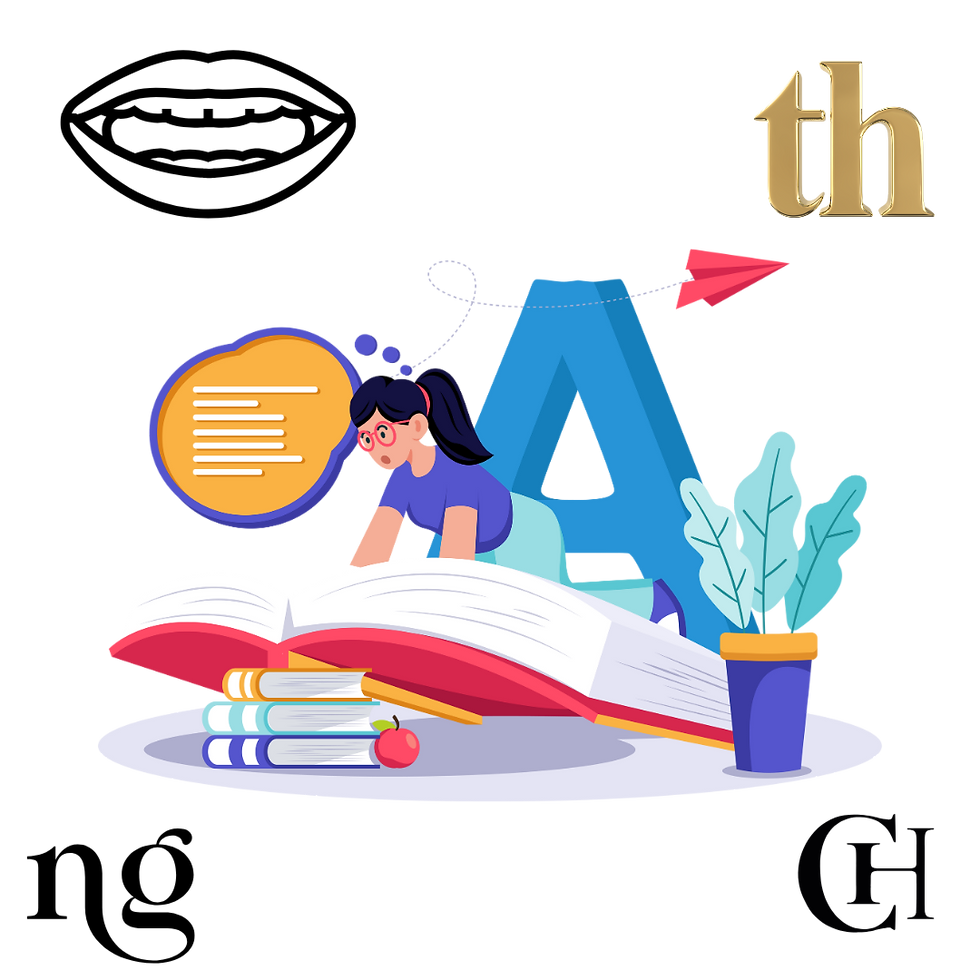In 15 minutes, you’ll have clarity on your child’s early literacy skills
- Bethany Yu

- Jul 18, 2025
- 3 min read

Many parents wonder if their child is reading at the level expected for their age. You might notice your child guessing words, confusing letters, or avoiding books altogether. These signs can leave you unsure of what to do next. That’s where a short, focused assessment can help.
We offer a free 15-minute literacy assessment for children aged 3 to 7. This short session is designed to provide you with real, practical insight into your child’s reading skills.
What the Assessment is
This is a literacy screening done by trained therapists. It focuses on early reading skills that are essential for school readiness.

We look at:
Letter name and sound recognition
Digraphs (ch, sh, th, ng)
First sounds in words
Blending (combining sounds to read words)
Recognition of basic sight words
Reading fluency of simple sentences
This is not a test of comprehension. We do not expect the child to explain what they read.
Why we offer it
Many children struggle with reading, but parents may not know until school becomes challenging.
Some children guess words or memorise patterns instead of sounding them out. Others may have trouble blending even simple three-letter words.
This assessment helps you catch those concerns early.
How it works
The assessment takes only 15 minutes
It’s conducted 1:1 with a therapist
You can observe your child throughout the entire session
No prep or materials needed
After the assessment:
The therapist shares a quick overview of your child’s reading level
You learn which sounds or patterns your child struggles with
You get a clear idea of where your child stands compared to their age group
We base our recommendations on the Seeing Stars™ approach.
What You’ll Get
A clear understanding of your child’s strengths and weaknesses
An idea of how your child compares to age expectations
Suggestions on how to support your child’s literacy at home
Recommendations for further support if needed
If your child shows signs of needing more support, we can guide you toward suitable follow-up programmes.
Where it Happens
The assessment is conducted at our Total Communication therapy centre in Singapore. You can call us directly or visit our website to schedule a session.
What to Expect
This is not a tutoring session. It’s a one-time, free short screening to understand your child’s current ability.
No worksheets or homework follow this.
Expect:
A calm, play-based setup
A therapist experienced in early literacy
Immediate verbal feedback after the session
We aim to make the session relaxed and child-friendly.
Who is this for

Children aged 3 to 7 who:
Are just starting to read
Have not received formal phonics instruction
Are unsure of letter sounds and blending
Struggle with reading fluency
Might be entering P1 soon, and you want to check readiness
This is especially useful if your child:
Confuses letters like b and d
Guesses words based on pictures
Avoids reading
Struggles to blend even simple words
You don’t need a referral. Just a concern or a question about your child’s reading level.
This assessment gives you useful feedback in a short amount of time. It’s free, fast, and run by trained therapists who understand child literacy.
If you’ve ever thought, “Is my child reading okay for their age?” This is your chance to find out.
Call us today or visit our website to book your free session.
Call/WhatsApp: +65 9115 8895
Fill out our reachout form: https://www.totalcommunication.com.sg/contact





It's so true that children often 'guess words or memorise patterns instead of sounding them out,' which highlights why early, focused assessments like yours are invaluable. Catching these foundational habits early can make a profound difference in a child's long-term reading development. While identifying these initial hurdles is critical, as children progress, the efficiency and pace at which they read also become significant factors in their overall academic success. For parents looking to understand how their child's reading efficiency develops beyond the early stages, exploring tools for measuring reading speed can offer further insights.